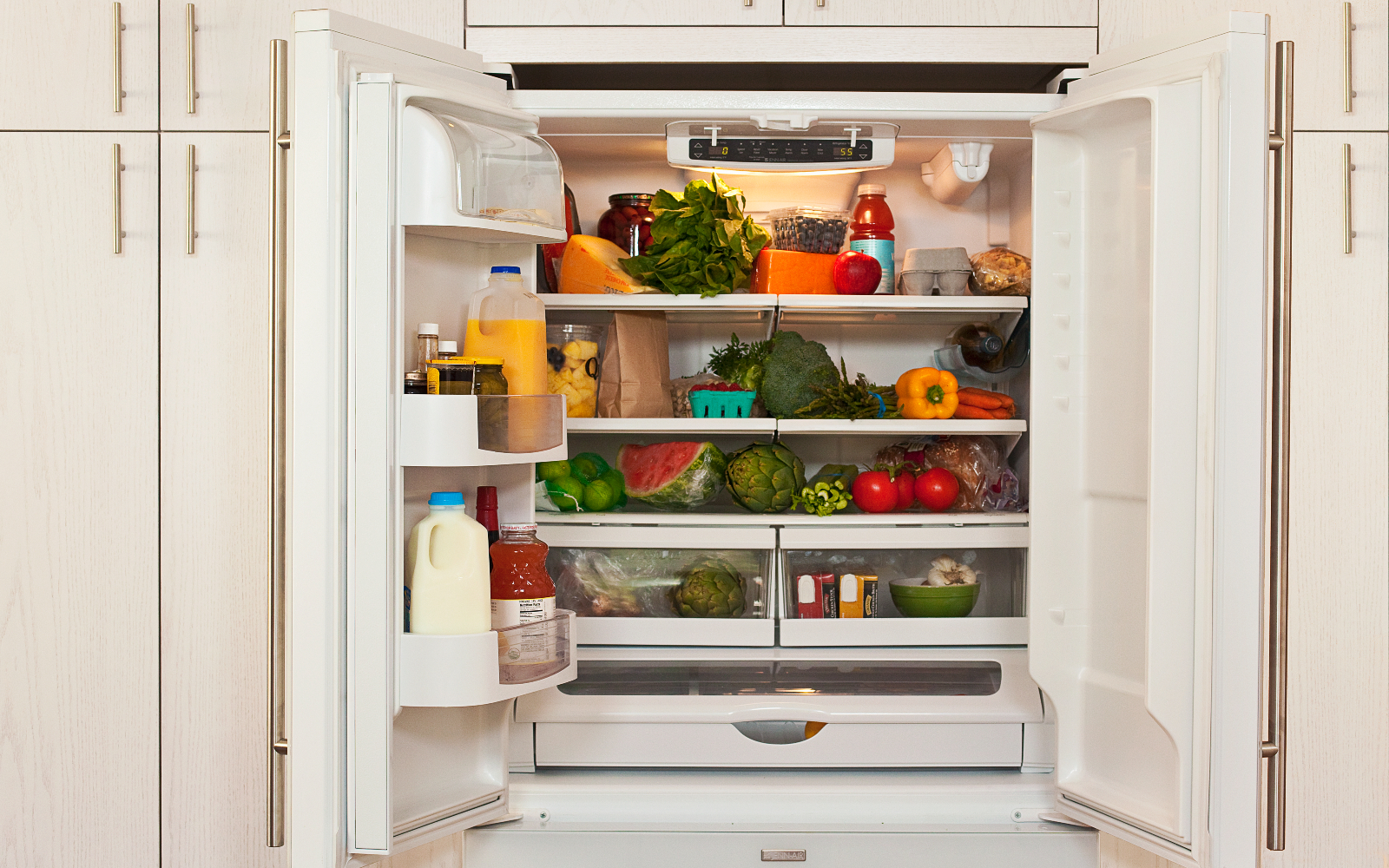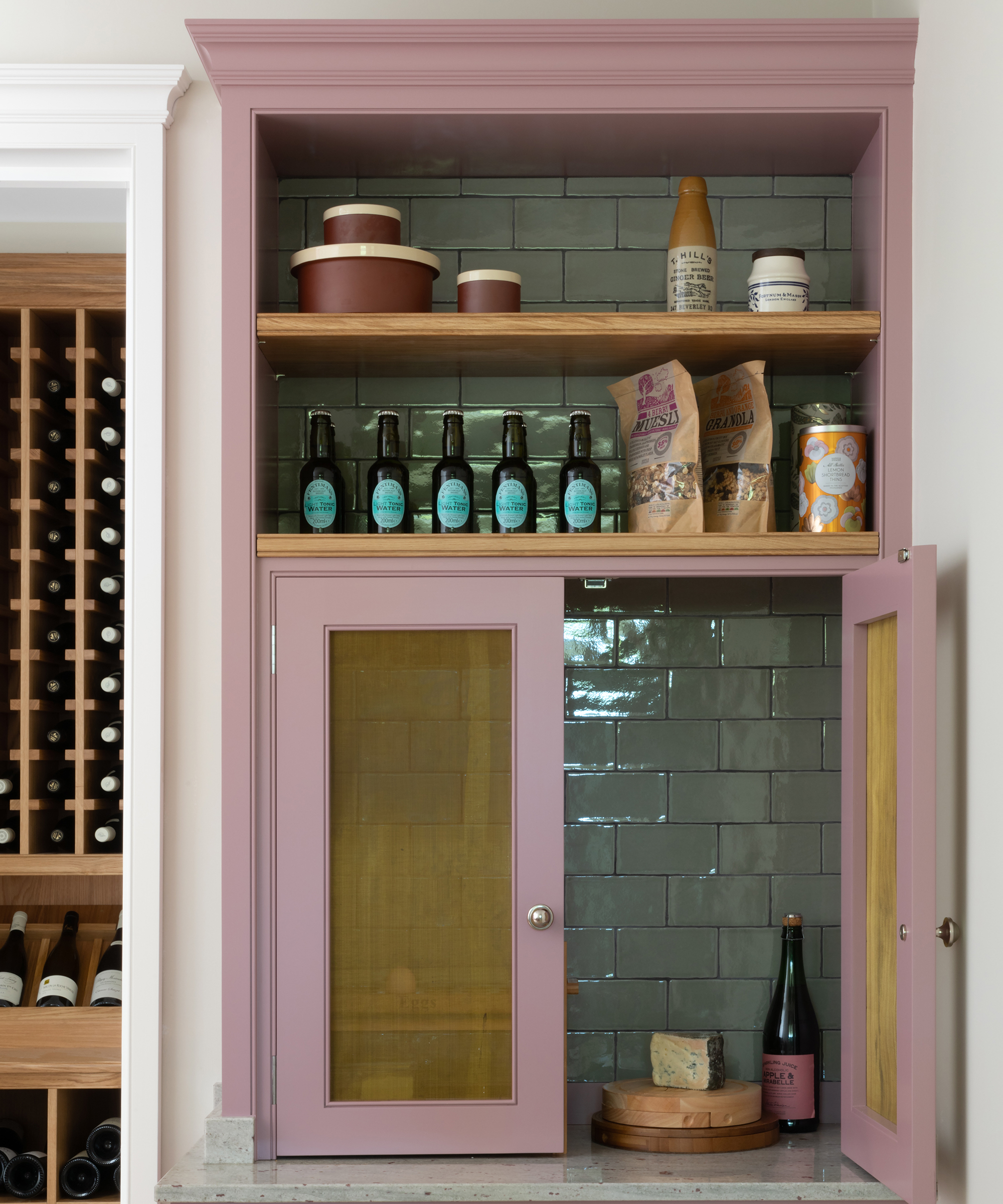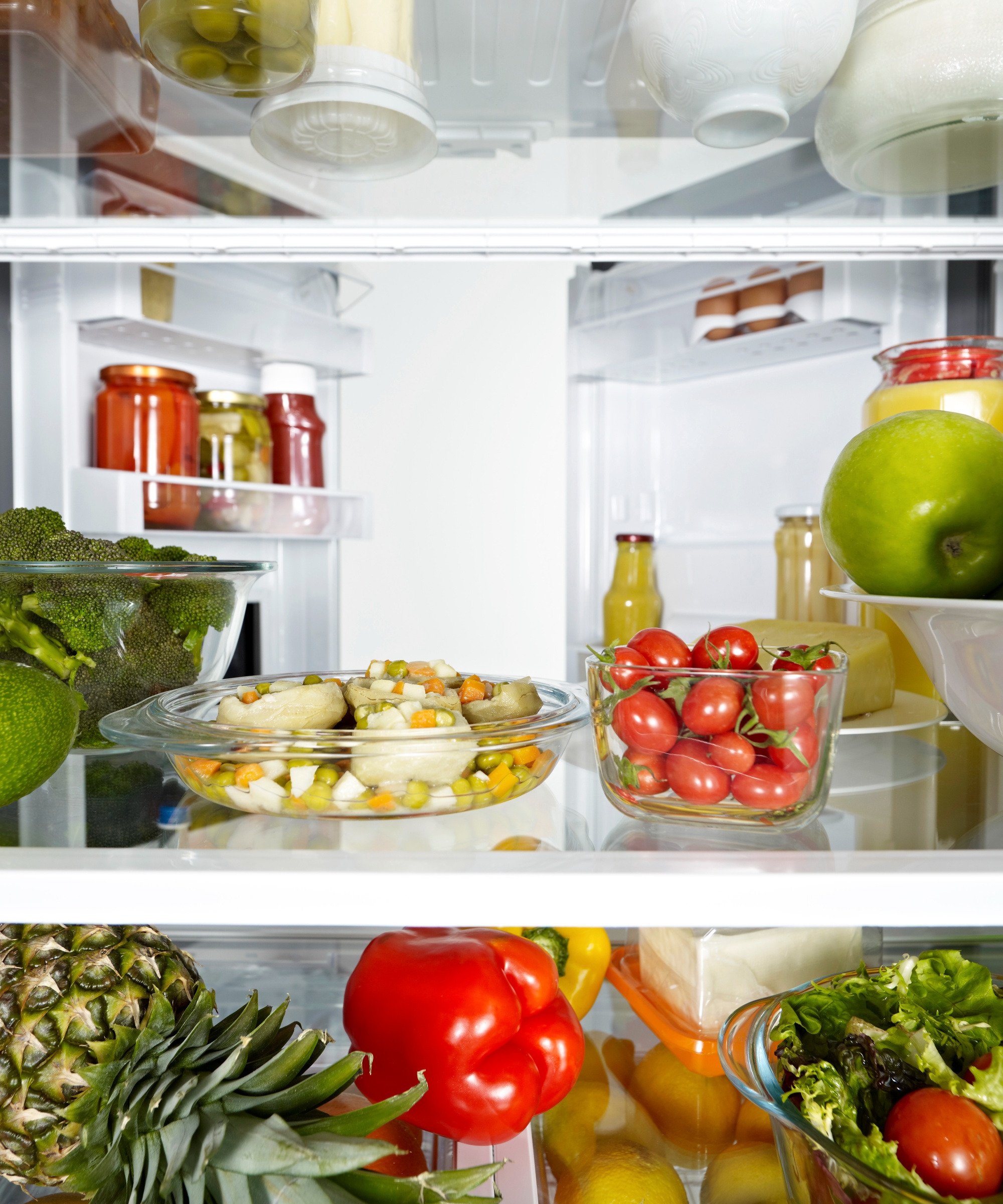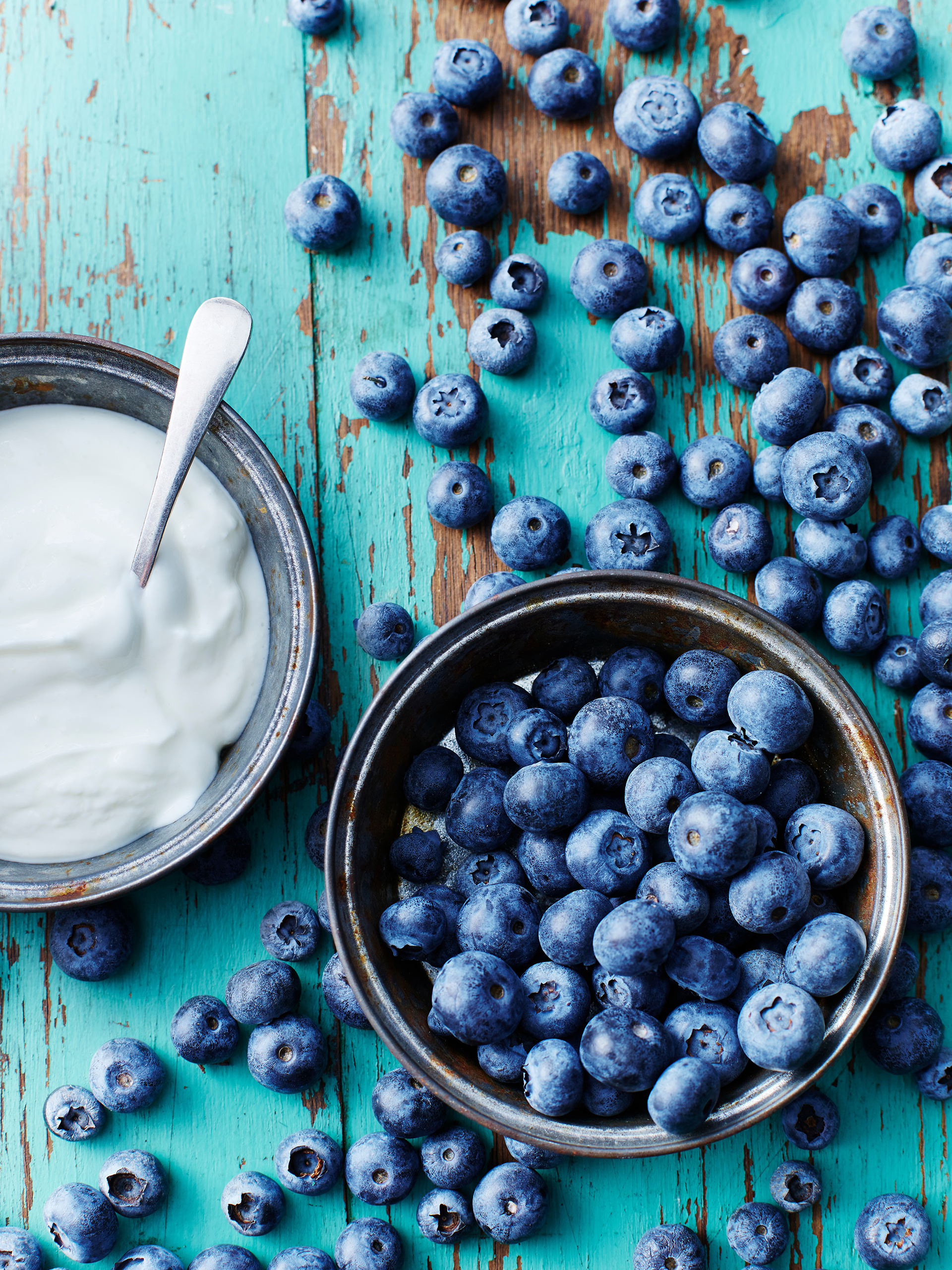These 5 simple storage tricks will extend the life of your groceries for longer
From fruit and veg and dairy goods – these unconventional tips will ensure your produce is fresh, and always delicious


Design expertise in your inbox – from inspiring decorating ideas and beautiful celebrity homes to practical gardening advice and shopping round-ups.
You are now subscribed
Your newsletter sign-up was successful
Want to add more newsletters?

Twice a week
Homes&Gardens
The ultimate interior design resource from the world's leading experts - discover inspiring decorating ideas, color scheming know-how, garden inspiration and shopping expertise.

Once a week
In The Loop from Next In Design
Members of the Next in Design Circle will receive In the Loop, our weekly email filled with trade news, names to know and spotlight moments. Together we’re building a brighter design future.

Twice a week
Cucina
Whether you’re passionate about hosting exquisite dinners, experimenting with culinary trends, or perfecting your kitchen's design with timeless elegance and innovative functionality, this newsletter is here to inspire
Mastering a seamless storage system will promote order and cleanliness in your kitchen – but its benefits are more than organizational. When armed with the right kitchen storage ideas, you can also extend the life of your fridge and cupboard – from fruit and vegetables – to chilled dairy goods.
As we become increasingly conscious of the effects of food waste, it is only natural to search for new ways to encourage your produce to live longer. However, you don't need to look far. The most effective methods (and surprising) methods involve simple changes in your storage habits – and drawing from pantry staples that you're already likely to have in your kitchen.
5 food storage tricks – for fresher, long-lasting groceries
Here's what you need to know about re-organizing a refrigerator – and the best way to store your organic produce – to prolong their taste and freshness.
1. Add salt to open milk

Depending on your preferences, your milk will typically last between four to ten days when kept in the fridge. However, if you need your milk to last longer, you can prolong its life with the most unusual of solutions: salt.
The experts at MoneyBoatrecommend adding 'a pinch of salt to the carton immediately after opening'. This acts as a preservative and so deters bacteria from growing. After adding the salt, it's important to give your carton a shake before placing it back into the fridge as soon as possible.
2. Store your milk in the coolest part of the fridge

When buying a refrigerator, you may already be tempted to map out where every item should live. After all, this keeps your appliance organized and makes unpacking groceries notably simpler. Though, the placement of your goods may make a difference to their lifespan, too.
'The door is, in fact, the warmest part of the fridge as it is furthest away from the cooling system. So instead, keep your milk at the back of the middle or higher shelves for maximum cool to lengthen the shelf life,' the experts share.
Design expertise in your inbox – from inspiring decorating ideas and beautiful celebrity homes to practical gardening advice and shopping round-ups.
3. Wrap hard cheese in parchment paper

It may be convenient to keep cheese wrapped in its plastic packaging, but this is far from beneficial for its shelf life.
Instead, the experts suggest wrapping hard cheese in parchment [such as this one from Amazon] or baking paper. 'This allows the cheese to breathe to avoid drying out but also prevents any extra moisture and therefore mold from growing,' they say. It will allow your cheese to last anywhere up to four weeks (in the fridge).
4. Bathe your vegetables in vinegar

If you're used to cleaning with vinegar, you will already know about this solution's power. However, beyond its conventional uses, experts are turning to vinegar to extend the lifespan of their vegetables through a simple vinegar-water ratio.
'The vinegar solution should be a 1:3 ratio of vinegar to water in either a bowl or your clean sink,' they say. You should then empty the veg into the solution before letting it sit for 15 minutes. After this, you should rinse and dry your produce before moving them into its storage containers.
'The vinegar solution disinfects, cleans, and removes any bacteria from the produce that might break down the food quicker,' the experts say. You should not be able to taste the solution on your produce after rinsing, and it will allow time to last for up to two weeks.
5. Store berries with a paper towel

Fruit is a staple of large and small kitchen storage ideas, and with the right tricks, you can extend their lives for up to three weeks. Berries are the easiest fruits to preserve – and you can do so with an airtight glass container and some dry paper towels from your kitchen cupboard.
After washing and drying your berries, you should place the fruit in an airtight glass container with a dry paper towel that will absorb any excess moisture and prevent mold from growing. Changing the paper towel every other day will allow for maximum freshness for up to three weeks.
'These five tricks take almost no time to incorporate into your daily routine, but they will make a noticeable difference to the shelf-life of your everyday essentials,' says Lucy Searle, editor in chief of Homes & Gardens. 'As the personal and environmental effects of food waste worsen, these small changes may make a big difference to your weekly shop – and you'll wonder why you didn't begin sooner.'

Megan is the Head of Celebrity Style News at Homes & Gardens, where she leads the celebrity/ news team. She has a history in interior design, travel, and news journalism, having lived and worked in New York, Paris, and, currently, London. Megan has bylines in Livingetc, The Telegraph, and IRK Magazine, and has interviewed the likes of Drew Barrymore, Ayesha Curry, Michelle Keegan, and Tan France, among others. She lives in a London apartment with her antique typewriter and an eclectic espresso cup collection, and dreams of a Kelly Wearstler-designed home.